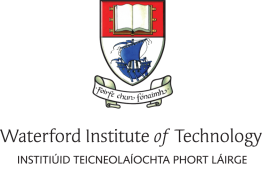This guest blog comes from Deborah O’Connell:
A number of years ago a friend of mine left a relationship because it had become abusive. She developed Post Traumatic Stress Disorder, she became completely different to the bubbly, adventurous and life loving friend I knew. She was nervous, on edge and fearful. I could not really understand why until the terror attacks of the last few years.
I wrote the below article for my local paper and I was commended by a domestic violence resource group for describing it so succinctly and accurately that the ordinary person could understand. I am now considering using this topic as the basis for my thesis, and I would appreciate any opinions. Contact: deborahoc@yahoo.com
A the launch of Ireland’s Second National Strategy on Domestic, Sexual and Gender-based Violence, in January 2016 Frances Fitzgerald, T.D. stated that
Attitudes towards domestic violence
“…there lies much work, difficult work, to be done in changing society’s attitudes”
For the person who has never experienced domestic violence I can only describe it as akin to the fears society has over the terrorist attacks in the West at the moment. Is it safe to travel, (Brussels Airport, March 2016) will the plane explode / crash into something (America, September 2001), will it be safe to go to the beach – (Nice July 2016)? Will the restaurant be attacked? (Bangladesh July 2016)
Fear, uncertainty, panic, on edge, anxious, terrified are just some of the words which can be used to describe the emotions of people caught up in terrorist attacks. For the bystanders, we watch in disbelief. I remember watching the news on September 11th 2001 and I thought i had accidentally switched over to a movie when the planes hit the towers. Terrorist attacks make us afraid and unsure. They attack the fundamental feeling of safety we have as we go about our daily lives.
This is the life of a domestic abuse victim. They cannot believe this is happening, they cannot understand it, and they live with the constant fear that it may happen again. Domestic Violence makes a person so unsure and so afraid they do not trust the world around them. People ask why they stay and its simple, how can they be certain the outside world is safer? How can they trust people, or indeed their own judgement? how will they cope? Similar fears to those victims of terrorism.
According to the world health organisation (WHO) almost 1/3 of women worldwide that is about 1.1 billion women will be affected by domestic violence. For every 3 women you know on average 1 is a victim of domestic violence.
Society doesn’t dismiss the feelings of victims of terrorist attacks or the fears of the general population about it, but victims of domestic violence are treated differently, for many they aren’t believed. A friend of mine was told they had mental health issues, told he can’t be that bad. Someone told her he was too good looking to be abusive! She wasn’t believed. Frances Fitzgerald has asked that society stop dismissing the feelings and fears of those who live with domestic abuse. I, for one, agree with her.


